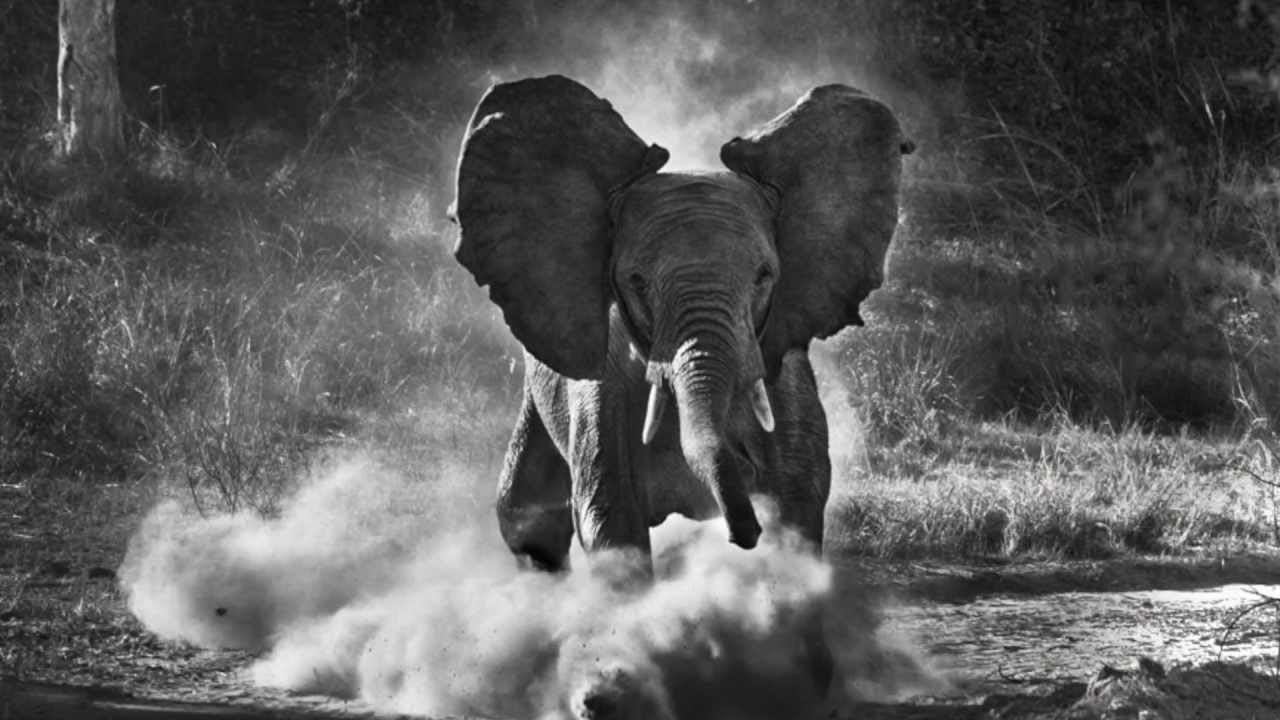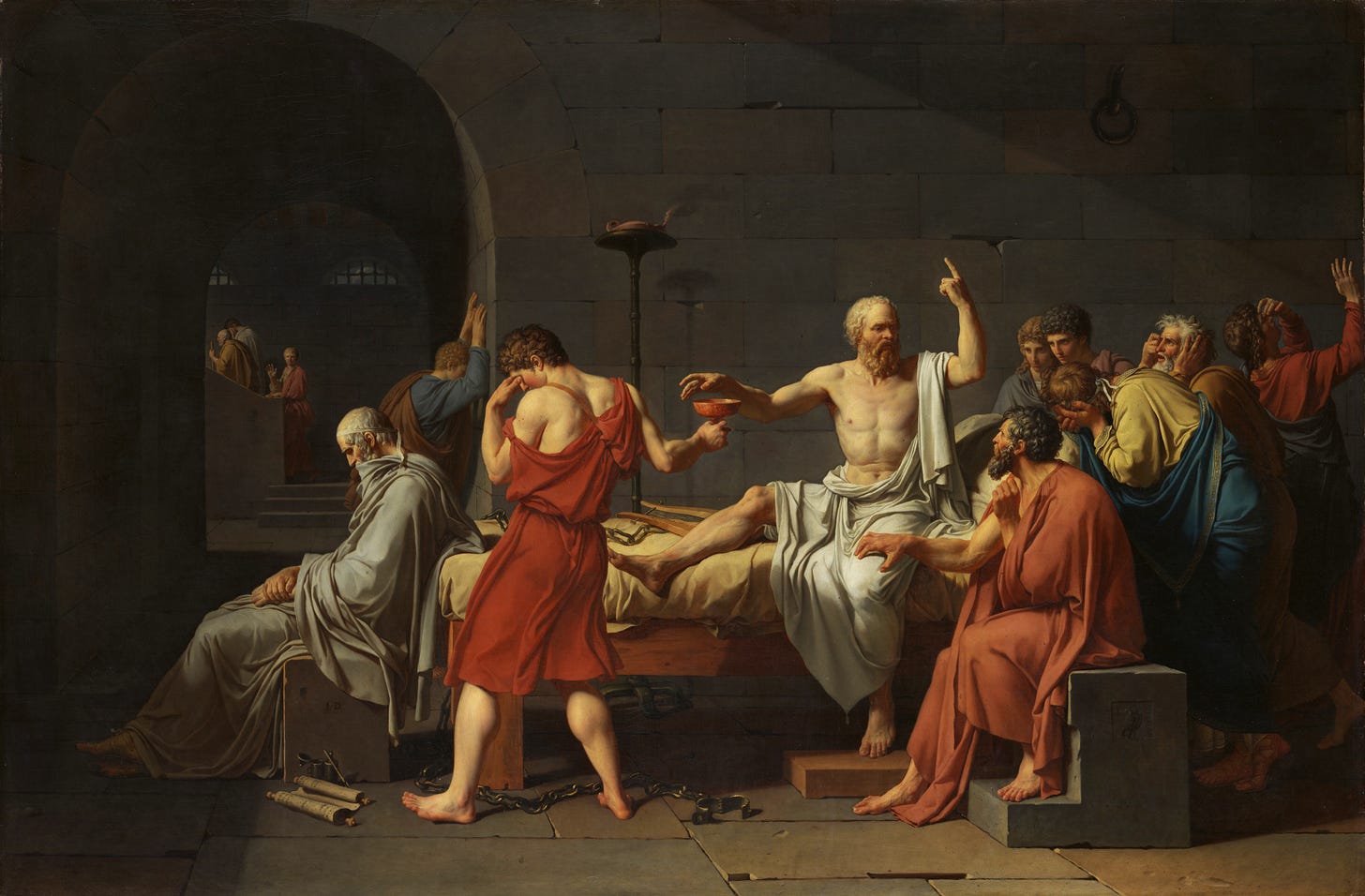#06 Rage against the dying of light
Do not go gently into that good night
Acceptance doesn’t mean to meekly renounce agency. It means having a clear view of reality, without lying or wishing that things were different, and acting with courageous integrity.
Radical acceptance requires courage and strength, honesty and sharpness, agency and willpower. It’s the opposite of what you usually associate with the concept of acceptance - a calm, smiling, quasi sheepish wise old person that doesn’t seem to be bothered by anything.
No, that’s not acceptance, that’s resignation; that’s despair. That’s giving up on the one life you have, giving up on your self and your wants and your potential.
Rage, rage against the dying of light
We’ve spoken about death as a metaphor for change (after all, that’s what life and death are) and that change is the constant in the universe. Resisting change is at the heart of suffering, but this resistance can take many forms, like denial, resignation, and withdrawal. But the poet Dylan Thomas makes us a more radical invitation: rage against the dying of light.

Responding to change, on the other hand, is what really sets apart those that make their will effected in life. It’s not enough to accept change; we have to accept that there is change, and adjust accordingly. In most cases, minor actions are sufficient, or even no action at all; you don’t have to bend reality to your will every time, nor is it in your best interest - save the energy and willpower to when they’re needed the most. And that’s where violent action is required.
Violence, clearly understood, not as the way we usually understand it, but as intense action and vehement expression (Merriam-Webster). Intense action is required to bring about grand visions, big plans, transformational projects, and a life worth living - a life that is examined, guided by reason, virtue, and principles, as Socrates said.
A Life Worth Living
Socrates was a soldier who fought in the Peloponnesian War, a stonemason and a public speaker. He was known for his wisdom, his self-control, and his courage in the face of danger. He was also known for his sharp wit and his ability to expose the ignorance of those who pretended to be wise.
As most people who refuse to adapt to a sick society, Socrates was a controversial figure. He was critical of the Athenian government and the traditional religious beliefs of his time, mostly because he believed that an unconstrained pursuit of money and power, in lieu of a higher self development, was detrimental to humans and to society. This led him to be condemned by the Athenian government for corrupting the youth of Athens. In 399 BC, Socrates was put on trial for impiety and corrupting the youth. He was found guilty and sentenced to death by drinking hemlock, a poison.
He didn’t fight the veredict or tried to flee the condemnation - those would be denials of reality and unfit for a man preaching the courageous life. Instead, he took a violent action, a raging act againts the dying of light that was free speech and free thinking. He immediately drank the poison offered, even as all his acolytes urged him to fight and live on. Drinking the hemlock was, in fact, his strongest commitment and act of faith in his beliefs; by doing that, he sent a violent message through centuries and millenia that his message was the righteous message. (We can easily think of other examples, like Jesus, Joan of Arc, Mandela, etc. - none of them meek.)
WIIFM
We have been trained to seek comfort, ease, and tranquility, and to accept life as is. That doesn’t benefit you in any sense. You must be willing to endure criticism, pain, discomfort, and anxiety if that means growing as a person and effecting change into your reality. As Reinhold Nieburh said in his Serenity Prayer, “grant me the serenity to accept the things I cannot change, the courage to change the things I can, and the wisdom to know the difference.”
Do not go gentle into that good night
Dylan Thomas
Do not go gentle into that good night,
Old age should burn and rave at close of day;
Rage, rage against the dying of the light.
Though wise men at their end know dark is right,
Because their words had forked no lightning they
Do not go gentle into that good night.
Good men, the last wave by, crying how bright
Their frail deeds might have danced in a green bay,
Rage, rage against the dying of the light.
Wild men who caught and sang the sun in flight,
And learn, too late, they grieved it on its way,
Do not go gentle into that good night.
Grave men, near death, who see with blinding sight
Blind eyes could blaze like meteors and be gay,
Rage, rage against the dying of the light.
And you, my father, there on the sad height,
Curse, bless, me now with your fierce tears, I pray.
Do not go gentle into that good night.
Rage, rage against the dying of the light.


